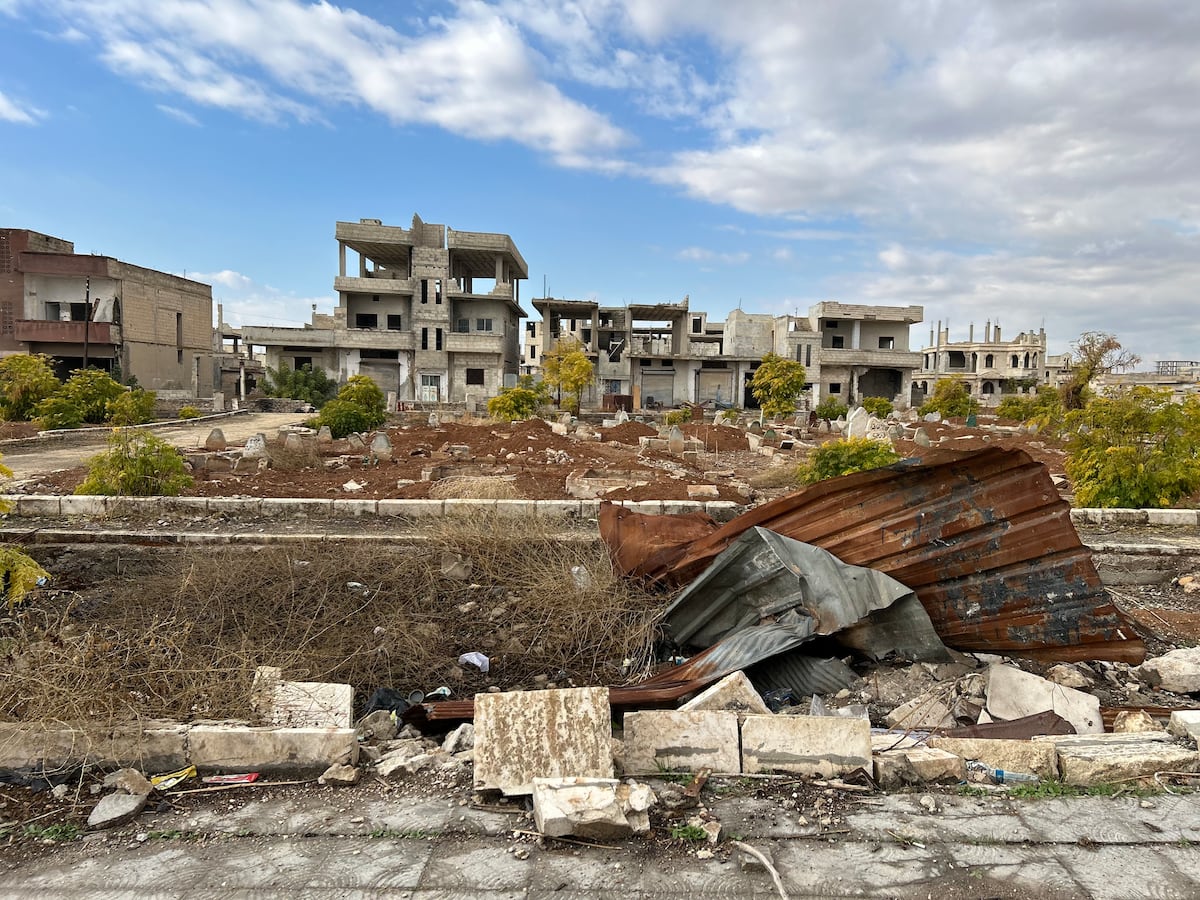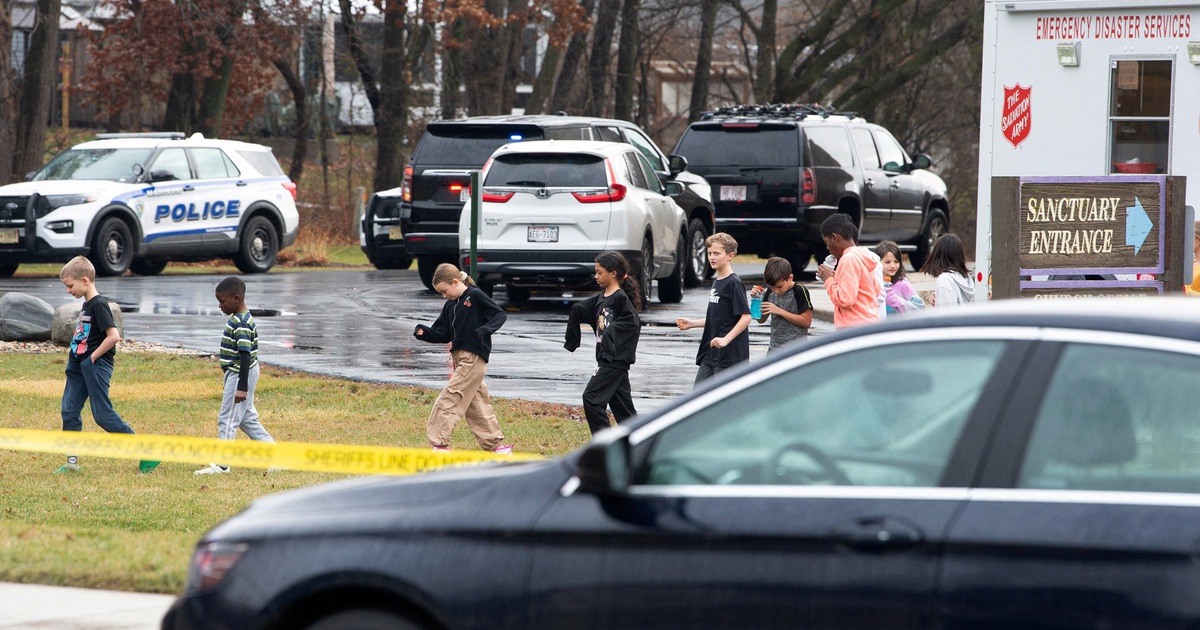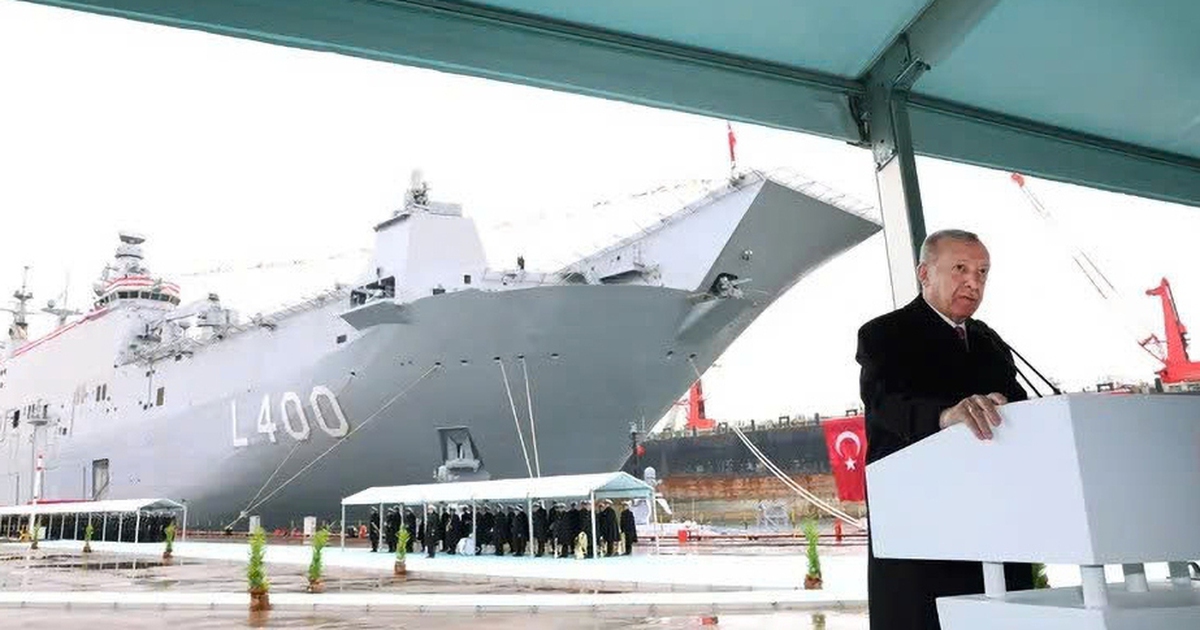Firas had gotten up early to tend to his animals. Shortly after six in the morning he noticed something strange. The cow began to vomit. He felt hot and suffocating – he puts his hands on his neck to explain – so he ran to pour water on his face. On April 4, 2017, the Bashar al-Assad regime’s aircraft were bombing Khan Sheikhoun, a town in the south of Idlib province, then in rebel hands. That bombing was not the same as the previous days.
Among the four bombs that the fighters dropped that morning, one fell at the top of the town, on the main road that goes down to the center, without causing the usual roar. Silently, he began to spread death around him. The shell casing contained a chemical agent, probably sarin, according to a later report by the Organization for the Prohibition of Chemical Weapons. The townspeople did not know. Many thought it was a bombing like the others, so they put their families to take refuge in the basements, which was their downfall.
When the projectile fell, Khalid Abdel Naym was on his farm on the outskirts of the town, attentive to the walkie talkie through which news of the bomber was transmitted, thanks to the fact that the rebels captured the regime’s radio signals. “When the fighters approached Khan Sheikhun, people ran into shelters,” he explains. He was afraid and decided to take shelter in his house: “The first ones who came to help also got sick or died.”
“Our neighbor put his two children and his wife in the shelter and went out to see what was happening and try to help. When he returned, they were dead,” explains Nahed al Shehan, who lives on a street that practically leads to the place where the projectile fell. At that time, she and her family were refugees in the city of Hama, but her sister and many of her neighbors were still in Khan Sheikhun and told her what had happened. Nahed points to the other side of the street: “Two people died in that building due to the chemical attack. In that other one, three. In that the woman, her father, her mother and her daughter. “We knew them all.”
“The atmospheric conditions were ideal for launching chemical weapons. The wind speed was only a little over three kilometers per hour, with no rain or hardly any clouds. Under these conditions, the cloud of nerve agent spread slowly down the hill, following the orography,” states the report of the UN commission that investigated the attack. Hence, the reason for launching it in the upper part of Khan Sheikhun and why Firas, who lived in a neighborhood far from the place, also felt the effect. “The children were the most affected, because their small bodies could not fight the chemicals,” he laments.
In total, the UN establishes that 83 people died, including 28 children – other investigations raise the death toll to over one hundred – and another 293 were severely affected (103 minors). It was the largest attack with chemical weapons of the Syrian civil war after the one carried out in Ghouta in 2013, with several hundred dead. “May God avenge us from them. They left many women widows and many children died from this criminal act,” says Khalid Abdel Naym in reference to Assad’s forces.
A US montage, according to the regime
The Syrian regime and Russia denied the major. Damascus claimed that it was a “setup” by the United States to justify the missile attack against the Shayrat air base that then-President Donald Trump ordered a few days later and that killed 16 people (nine of them civilians). Russia, for its part, leaked different versions, such as that it was a false flag attack or that it actually occurred because a normal projectile hit a warehouse where the rebels manufactured chemical weapons, something denied by the UN report.
Not in vain, Nahed relates that when the regime reconquered the town, in 2019, they fenced and closed the gap left by the projectile and prohibited anyone from approaching it. Even more: in the so-called Martyrs’ Park, where the victims of the attack were buried, many tombs appear empty. “The regime forces took them out and took them to the cemetery, and on top of that they made the families pay them for it,” says Khalid Abdel Naym: “They wanted people to forget what had happened.”
However, people do not forget and whoever you ask demands justice. First they demand peace – now that the conflict has ended with the fall of the regime – but immediately afterwards they also ask for punishment for those responsible. “We are all happy that, thank God, the war and the destruction of the Assads are over,” says Fuad, another neighbor, “but everyone has the right to justice and those responsible should be brought to justice.” “Even if Assad dies and goes to seventh heaven, I would go find him to bring him to court,” says Firas.
The current inhabitants of Khan Sheikhun are not many. After the chemical attack, many residents left; After the conquest by the regime, many more left. Only his family and one other live on Nahed’s street. Four years ago it was difficult for him to return. “The soldiers told us that we were not allowed to live here, that there had been a chemical attack. We fought and returned to this house, which my parents built,” explains the woman, speaking openly, as if a slab had been lifted from her chest that had oppressed her for many years. And the fact is that, even when they were installed, they were constantly harassed by the regime’s military, who often knocked on their door to carry out “security investigations” on the family; or they were subjected to the continuous bribes that were demanded of them in order not to force the recruitment of their son, despite the fact that he had a document that exempted him.
Now, Nahed breathes a sigh of relief; He hopes that things will get better, even though devastation reigns around him. The regime forces thoroughly destroyed this town and many others in the surrounding area. First with bombings and artillery, then destroying everything. Most buildings don’t lack furniture inside, they don’t even have doors, windows or their frames. Neither tiles nor tiles. They are empty carcasses, lifeless skeletons. Spectral neighborhoods through which those who remain walk like little ants lost among the stones. “The forces of the regime destroyed everything, they ruined everything,” Firas laments: “There is no life left where they passed.”









